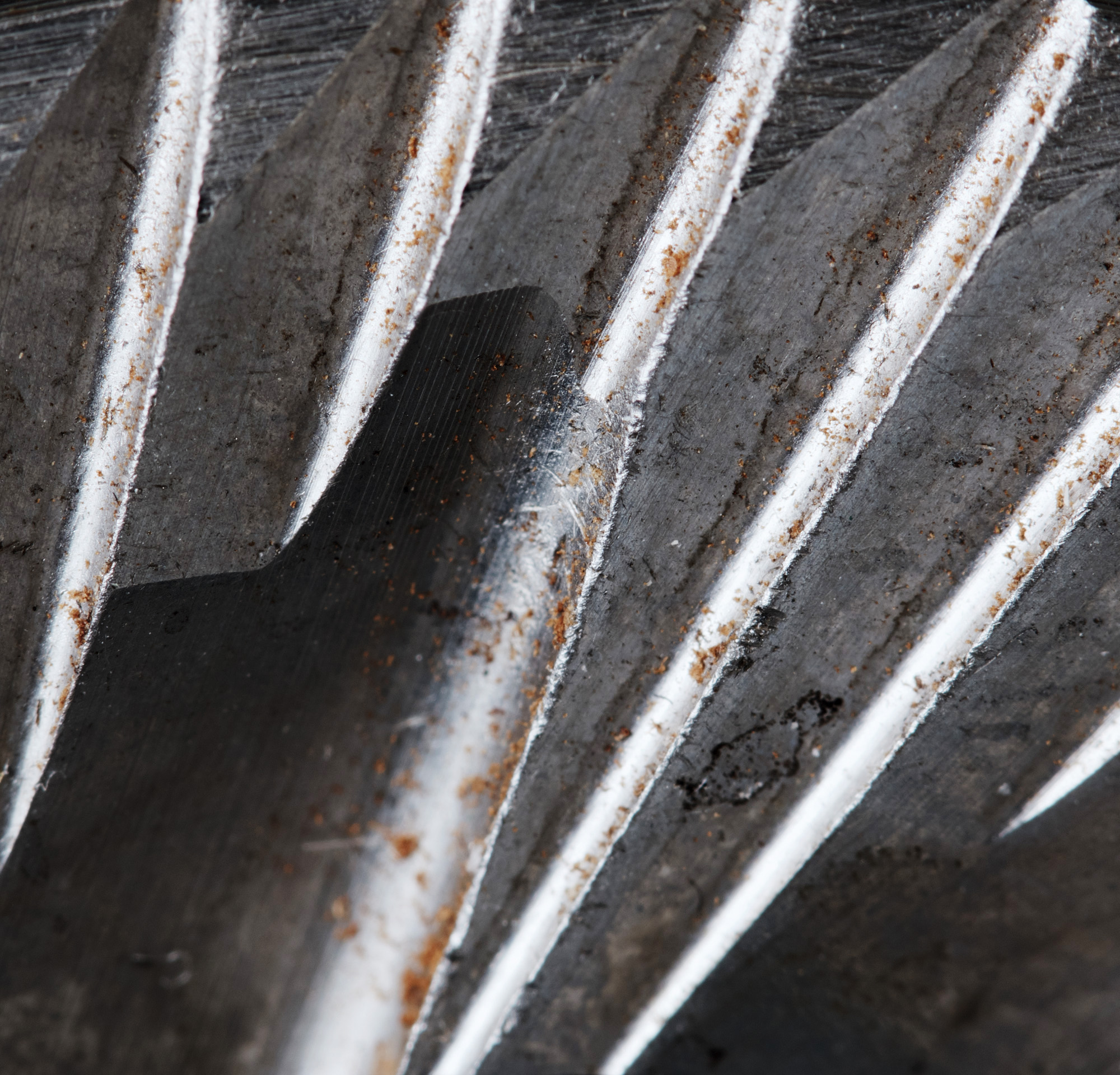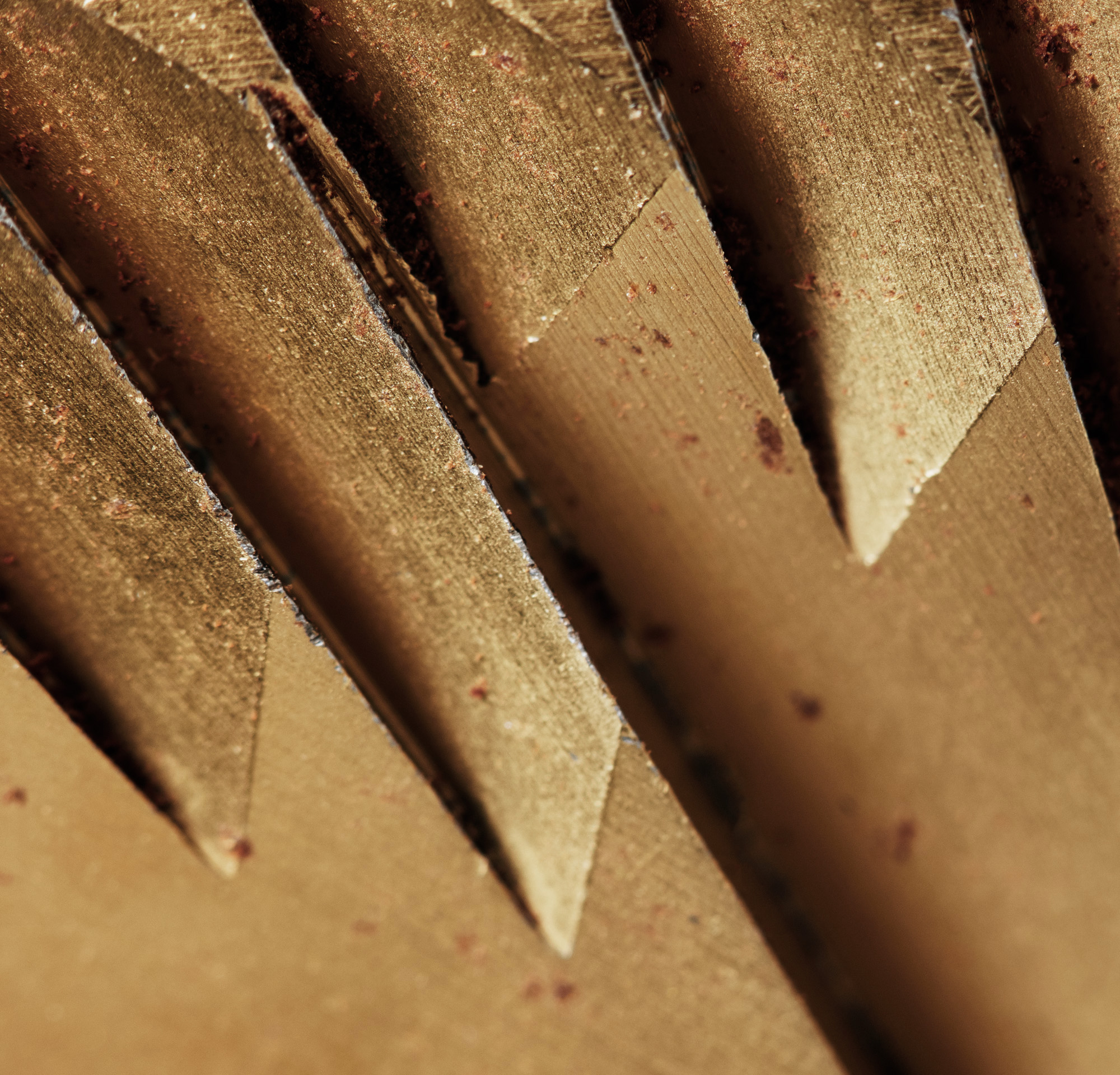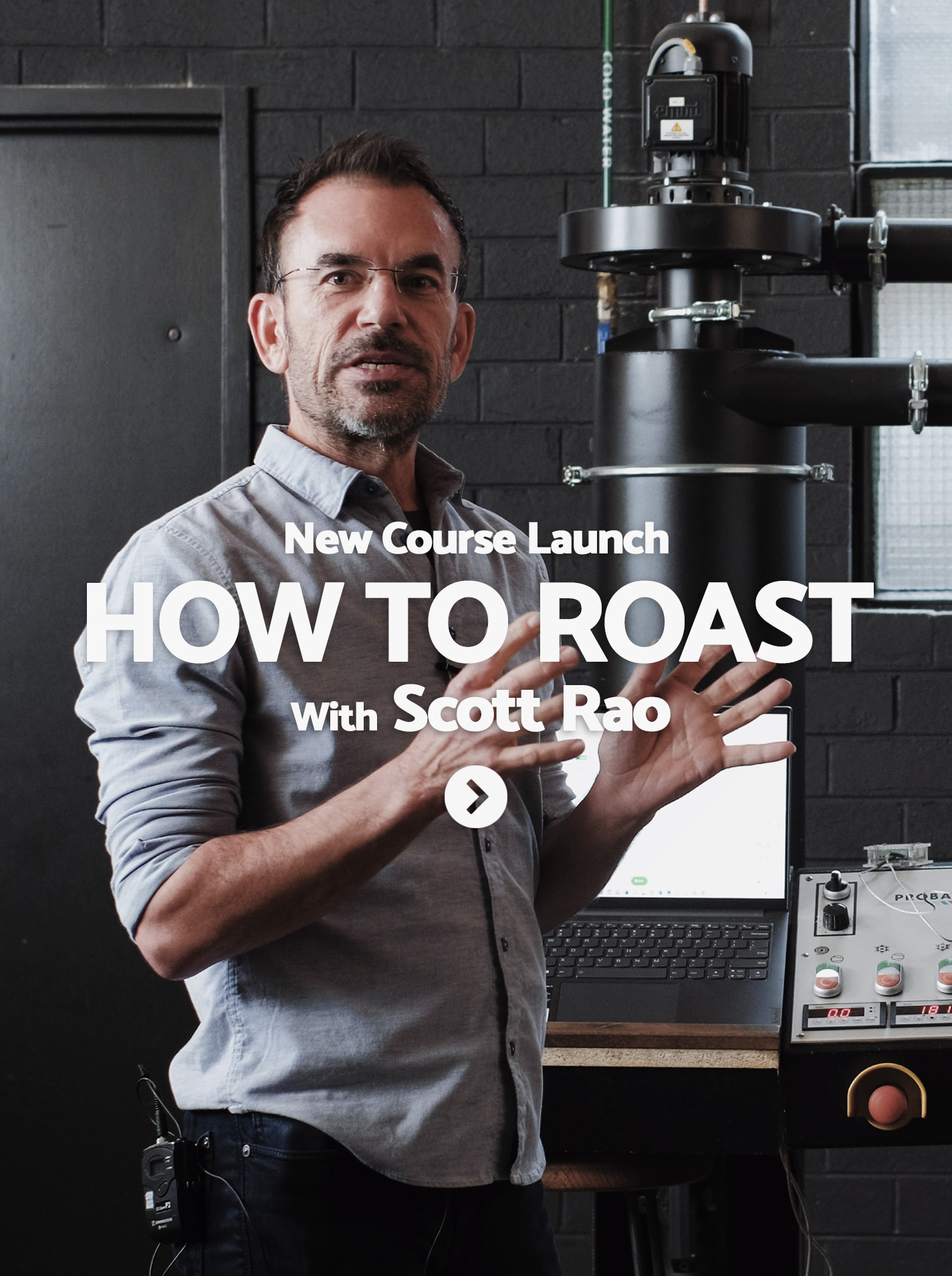How can I tell when it’s time to change blunt grinder burrs? If you’re looking at your grinder, asking yourself this question, then it’s probably time to change them. While grinder manufacturers may claim that their burrs can grind hundreds and sometimes thousands of kilos of coffee, the truth is that, after they are seasoned, burrs wear out gradually over time — there’s not a specific point where you can say the burrs are worn out.
What Are Burrs Made From?
Standard burrs are made from steel that has been ‘oil-quenched’ — a process that hardens the outer surface of the burr by rapidly cooling it. The rapid cooling induces the steel to form a specific crystalline structure called martensite that makes it harder and more brittle. This process results in burrs with a hardened outer shell, and a softer core. This means that once the hardened shell has worn out, the burrs will wear much more quickly, as this post from the SCA’s Coffee Technicians Guild explains.
While this implies that there is a hard limit to the burrs’ lifespan, the truth is that the flavour and grind quality from the burrs will deteriorate gradually over the life of the burrs, so changing the burrs sooner than this will result in an improvement in quality.
More advanced burrs may have a thicker hardened layer, or be made from a material that is hard the whole way through (Chromoly Steel, Tool Steel or even ceramic). They may also be covered with a harder material such as the gold-colored titanium nitride (TiN) or ‘Red Speed’ coatings, which greatly extend the lifespan of the burr.
Images from left to right: very worn tool steel burrs, worn titanium coated burrs, new ceramic burrs.
Whatever materials are used in your burrs, choosing when to change them is essentially a compromise between quality and the cost of replacing them. However, there are a few indicators you can use to help you decide when to make a change.
Manufacturer Recommendations
Manufacturers publish a recommended lifespan for each burr design, so this is a good place to start. However, the way they come up with these numbers will vary between manufacturers, and they may be tempted to exaggerate the lifespan (or perhaps to underestimate it in order to sell new burrs more often).
It’s often possible to grind coffee for many years past the stated lifespan of the burrs, but the deterioration in flavour will become noticeable well before then, with some professionals recommending to change the burrs after as little as half of their recommended lifespan.
The following is a list of some manufacturers recommendations, which can be found on the Espresso Parts website, but we recommend looking up the current recommendations directly from your manufacturer, as these do occasionally change.
- Anfim Caimano (75mm flat burr) – change at 1,300lbs throughput
- Bunn G Series – change at 40,000lbs throughput
- La Marzocco Swift (64mm ceramic flat burr) – change at 3,300lbs coffee throughput
- Mahlkonig K30 – change at 1600lbs coffee throughput
- Mahlkonig EK43 – change at 14,300lbs coffee throughput
- Mahlkonig Tanzania – change at 8,000-10,000lbs coffee throughput
- Mazzer Mini (58mm flat burr) – change at 660lbs coffee throughput
- Mazzer Mini E – (64mm flat burr) – change at 660lbs of coffee throughput
- Mazzer Super Jolly (64mm flat burr) – change at 880lbs coffee throughput
- Mazzer Major (83mm flat burr) – change at 1,300lbs coffee throughput
- Mazzer Kony (63mm conical burr) – change at 1,640lbs coffee throughput
- Mazzer Robur 110V (71mm conical burr) – change at 1,700lbs coffee throughput
- Mazzer Robur 220V Three Phase (83mm conical burr) – change at 1,800lbs coffee throughput
- Nouva Simonelli MDX (64mm flat burr) – change at 1,200lbs coffee throughput
- Nouva Simonelli Mythos (75mm flat titanium burr) – change at 1,500lbs coffee throughput
Extraction
A more objective gauge of when to change the burrs comes from measuring extraction. As burrs age, the evenness of extraction gradually decreases. This means that the highest extraction you can reach before astringency sets in (the extraction ceiling) will gradually decrease.
If you’re following a fixed recipe, then the overall extraction will also decrease as the burrs wear out (Rao, 2016, Socratic Coffee 2015). Extraction measurements however do rely on using the same or similar-enough coffee over the lifespan of the burrs — such as a good, consistent espresso blend. If you’re changing coffee frequently, you may need to look for other signs that the burrs are wearing out instead.
Other Indications
While extraction is the easiest and most objective way to test your burrs, there are some other signs to look for. The most obvious is that the grinder has to work harder as the burrs become less sharp, which means it makes more noise, generates more heat, and takes longer to grind the same amount of coffee.
You may also notice that the grinder produces more clumps (Socratic Coffee, 2015), or that the shot times have become more inconsistent. All of these are signs that wear on the burrs is starting to impact the performance of the grinder.
Extremely worn burrs can produce visibly more fines than sharp burrs, resulting in muddy-looking beds in your brews, or more solids at the bottom of your espresso. However, by the time this happens, the other signs of wear have usually become fairly obvious.
The traditional way to determine if worn burrs are causing these problems is to inspect the burrs, and to feel the cutting edge of the burrs for sharpness, usually by dragging a fingernail around the outside of the burrs. However, this relies on a clear memory of what new burrs look and feel like.
Taste
While extraction may be the easiest way to measure wear on the burrs, ultimately, deciding when to change the burrs is a matter of taste. Duller burrs produce lower and less even extractions, resulting in cups that may taste increasingly muddy, flat, soury, or astringent. Switching to new, seasoned, burrs will give you bright, sparkling, and transparent flavours once more.
Because this deterioration in quality is a gradual process, you’ll need to make a decision on when it becomes too much for the level of quality you’re trying to achieve. But if you’re in any doubt, then it’s probably time to consider a change. Replacement burrs may not be cheap — but poor extractions and long grind times cost your business money too.







Interesting article. I have huge problems with a sluggish grinder (worn down from drinking too much espresso!), so I definitely need to look into fixing it or replacing it. I never knew that it could have an effect on the taste in the coffee. Amazing how that works. Super happy I read the article, and will now read a few more 🙂
Would inspection with an USB microscope be a good way to assess burr wear? They can be bought for below 100$, with fantastic results in the 150$ range. Are there more reference images of no wear to heavy wear that can be used for comparison? (The ones you included above are already a great starting point.)